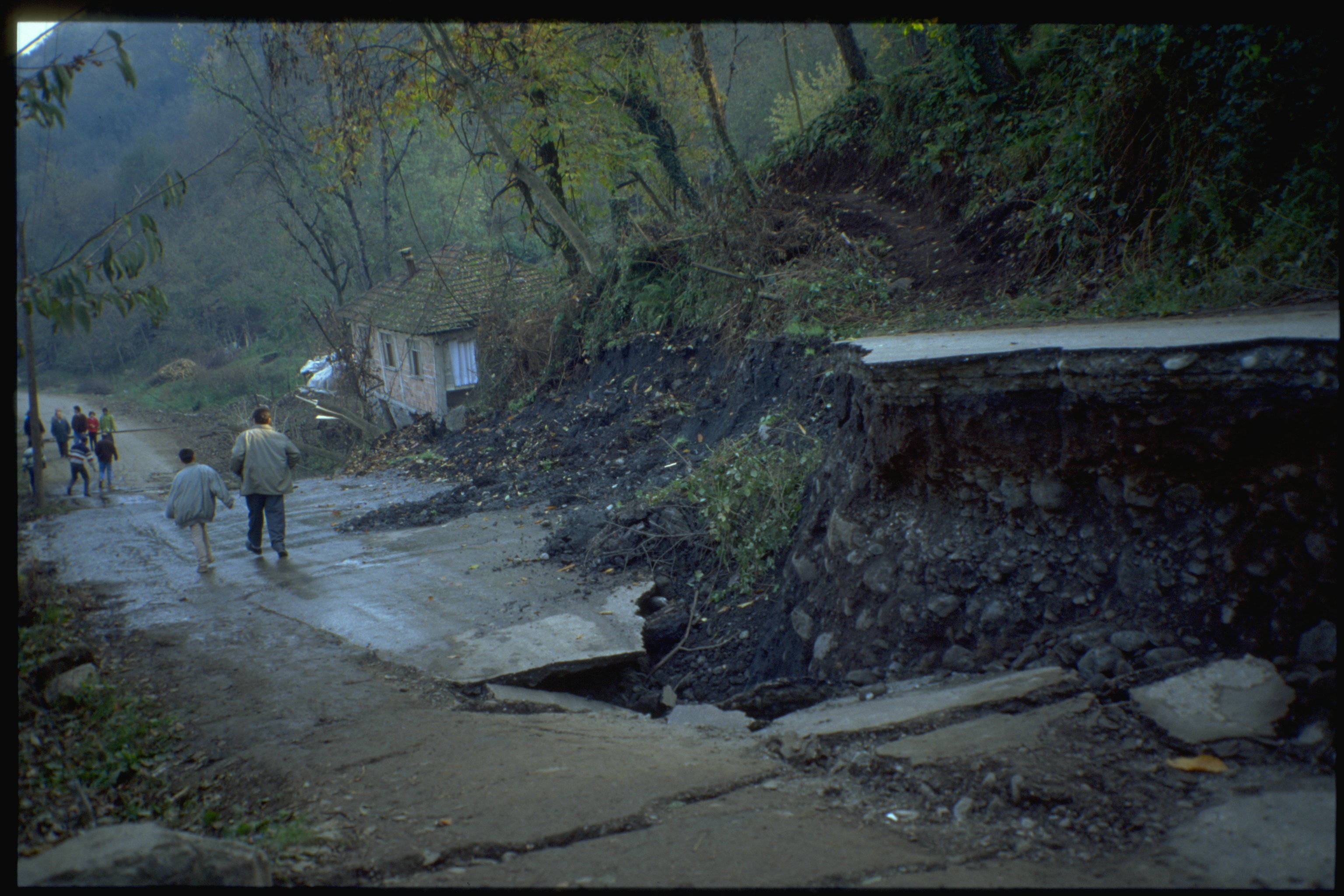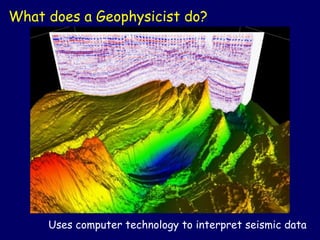All Categories
Featured
Table of Contents
Gravity Geophysical Survey Method in Bentley Oz 2022
This work is increasingly contracted out, so consultancies provide another source of work. Consultancy firms vary in size, from very small business to big multinationals. Some consultancies are rather specialised in using particular geophysical strategies or working in specific areas, while others use a more varied variety of services to their clients.
The extraction of gas from landfill sites is another area of employment and this might grow in the future. Exploration companies might undertake work for building and construction companies, water business, mining business and ecological companies, so geophysicists might be employed in any of these settings. Other employers consist of: geological surveysgovernment bodies and agenciesuniversities and research institutes.


Vacancies might be noted in the oil and gas sector press. Recruitment is affected by oil rate changes and the level of competition for positions differs depending on this. Careers Days, which cover the full variety of geoscience professions and are normally attended by a variety of essential market employers, are run by The Geological Society.
Recent Advances In Optimized Geophysical Survey Design in Pickering Brook WA 2021
Some of the big oil and gas business provide a complete two-year structured training program throughout the breadth of geophysics, consisting of the chance to experience operate in numerous teams prior to specialising in one area. Your training might consist of deal with: existing wellsmagnetic and gravitational possible field data analysisresearchrock analysis. However, it's more normal for your preliminary training to be offered on the job.

There may be a probationary period during which you work alongside an experienced coworker. Competency-based appraisals occur regularly in most companies. In smaller firms, and for scholastic posts, there is not likely to be any formal training - you'll be expected to begin work straightaway and get skills as you go along.
If you work for a smaller sized business, you might find that you need to take duty for arranging and moneying your own advancement and training. If you have a geology degree, subscription of The Geological Society can be helpful for networking and for keeping up to date with the market.
What Can I Do With A Major In Geophysics? in Highgate WA 2020
You may likewise find it helpful to sign up with the PESGB (The Petroleum Expedition Society of Great Britain, which has a geophysics unique interest group. After a probationary duration, and once you have actually acquired some experience, you could advance to senior geophysicist, then team leader and then into a senior function in management.
The ease of motion between functions depends upon the business structure. Study at Masters or Ph, D level in a subject associated to geophysics or geosciences may aid with your career advancement and development. The employment market within the oil and gas market is very depending on cost and this might impact your chances for profession progression.
However, not all jobs depend on the oil and gas industries. For knowledgeable geophysicists, freelance consultancy provides a good path for career advancement. You can likewise specialise in a specific area of geophysics. As a geophysicist, you're most likely to have numerous jobs throughout your working life. Global movement is vital for handling peaks and troughs in different countries at different times.
How A Geophysical Survey Is Crucial To Offshore Wind Farm ... in Hamersley Western Australia 2020
From geophysics, it's possible to concentrate on seismology (completing further training to become a seismic interpreter) or to move into related locations such as engineering geology or hazard forecast.
Deciding what to study in college is a difficult choice. Even if you know that your field of interest lies in science, what program of research study is right for you?
However the first action to achieving your goal of becoming a geophysicist is making a degree. Even for entry-level positions in the field of geoscience, you'll require a bachelor's degree (a geophysicist college degree) from a recognized college or university. Some research study positions require candidates to hold master's degrees and even Ph.
Mining Geophysicist Profile in Pearsall WA 2021
Doctoral degrees are particularly essential if you plan to teach at a four-year organization. Geophysicists use physics concepts and techniques to study the gravitational, magnetic, and electrical fields of the earth. This enhances researchers' understanding of both the planet's interior core and its surface. Geophysicists must have the ability to: evaluate rocks, photographs, and other pieces of data perform research both in the field and in laboratories create maps and charts of their findings compose reports To achieve all this, trainees require a specialized education for geophysicist professions.
As stated above, you'll require a bachelor's degree in geoscience or an associated discipline, such as a physical science or a life sciences, to land an entry-level job. Students can also prepare by majoring in subjects like: Biology Chemistry Computer system science Engineering Mathematics Physics The above geophysicist majors provide a more generalized technique to a single clinical discipline, however most programs require students to take one or more geology course.
Latest Posts
Geophysicist Jobs in North Perth Australia 2021
Geophysical Survey Definition in Warnbro Western Australia 2021
What Is Geophysics? in Carlisle Australia 2020